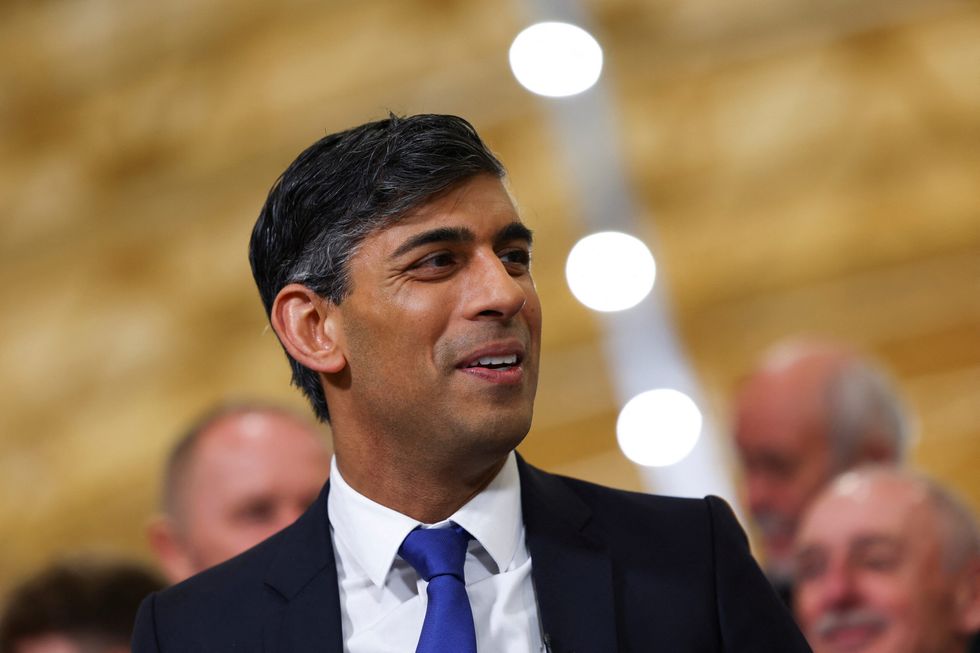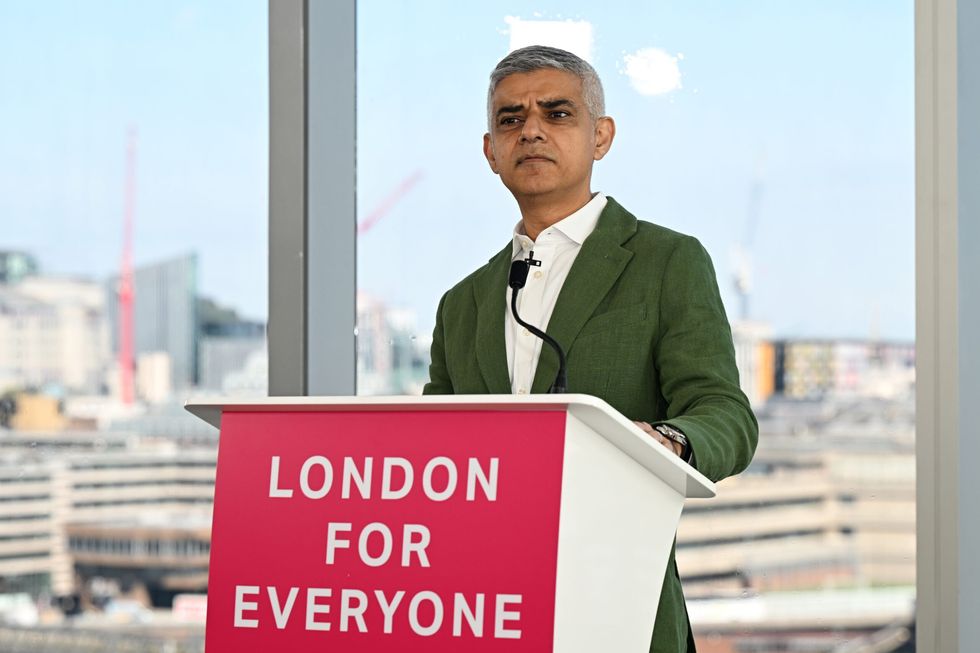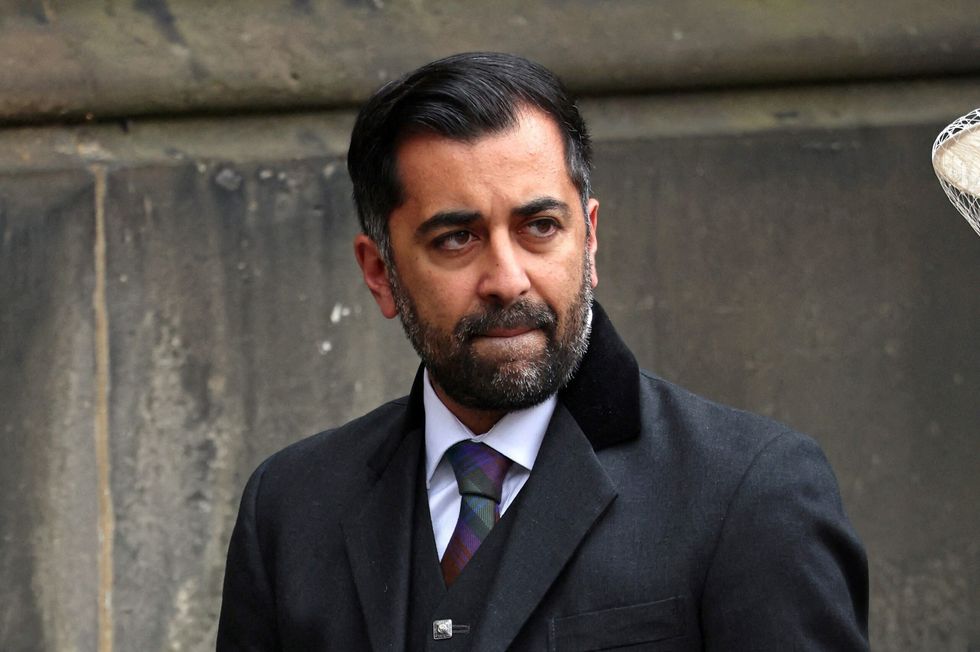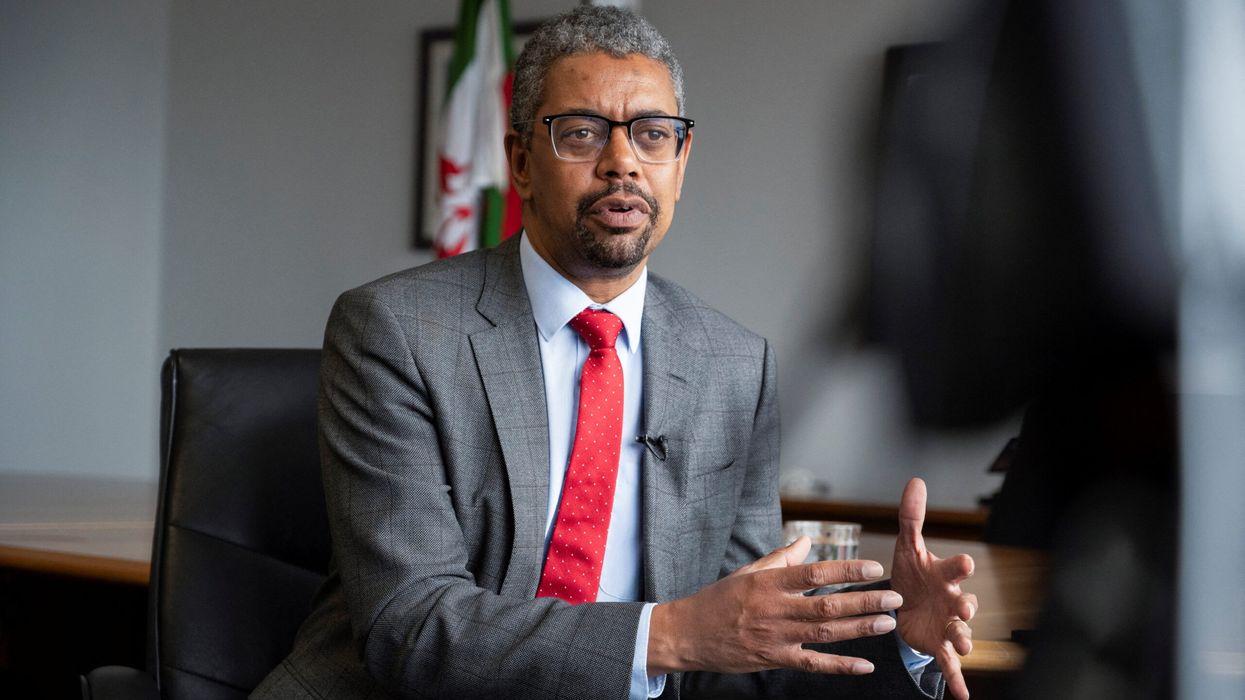WHEN he took office as First Minister of Wales in March, Vaughan Gething became the first Black head of government in Europe - yet he believes UK society is more overtly racist than a decade ago.
"On virtually every piece of social media that went out for my campaign, there'd be a stream of messages underneath it that were questioning my right to be here," said the leader of the Welsh Labour party. "And some were much more overt than that."
Zambian-born Gething, 50, said there had been even more offensive and racist material directed at him since he took up the post, but he tries not to look at it.
Gething's Welsh father went to Africa as a vet and married his mother, a Zambian chicken farmer. When the family relocated to Wales, his father was rejected from one job after the employer saw his wife and children were black.
Times have changed.
People from ethnic minorities are reaching Britain's highest offices on a scale unseen elsewhere in Europe.

Prime minister Rishi Sunak is of Indian background. And until recently, the position of Scottish First Minister was held by Hamza Yousaf, of Pakistani heritage.
"The fact that it has happened at scale and in countries with lower diversity, such as Wales, [creates] a further sense that this is a norm across our politics," said Sunder Katwala, director of think tank British Futures.
Minority representation
Gething believes that viewing his election as a sign of Britain’s successful multiculturalism is too simplistic and masks a recent resurgence of racism despite undoubted progress in the decades since his father's return from Zambia.
London's mayor election earlier this month, for example, was marred by racist commentary and threats to the incumbent Sadiq Khan, a Muslim, who does not leave the house without bodyguards.

"You see division that is more overt ... you see a change in tone where people are happier to say things out loud that they would not have said in 2005," Gething said from the Welsh parliament building overlooking Cardiff Bay.
In the last 2019 UK general election, 66 members of parliament of ethnic minority background won seats - compared to 15 in 2005.
The next parliament, after a vote expected later this year, will be the "most diverse ever", British Futures predicts, with 12 per cent of lawmakers from ethnic minority background compared to 16 per cent of the general population.
Shabna Begum, CEO of the Runnymede Trust, a racial equality think tank, said parties have come a long way in selecting minority candidates previously considered "unelectable".
"But there is a disconnect. What we see is a great diversity in political leadership that hasn't translated into better politics for working class ethnic minority people."
Racial inequality is in fact deepening in Britain.

Average incomes as a ratio of the poverty line fell by 6 per cent over the previous decade for black and minority ethnic people, compared to one per cent for whites, according to a Runnymede study from October 2022.
The disparity is highest in Wales, where minorities are 3.5 times more likely to be in poverty than white compatriots.
Race-related hate crimes recorded by police in England and Wales have risen 43 per cent in the five years to 2023.
Some ethnic minority voters, who historically favour Labour, are feeling alienated due to the party's position on the Gaza conflict and backtracking on equality pledges, says Neema Begum, assistant professor in politics at Nottingham University.
"It's a signal that Labour is taking Black and minority voters for granted, but there's enough disgruntlement with the (ruling) Conservative Party as well, so there isn't really an alternative," she said.
Labour leader Keir Starmer acknowledged Muslim voters' disappointment that the party had not taken a stronger pro-Palestinian stance over Gaza had dented support in recent local elections where it nevertheless performed strongly.
In Butetown, a diverse working class neighbourhood a short walk from the Welsh parliament or Senned, community activist Steve Khaireh has noticed increased demand at the food bank and that kids turn up hungry to the youth club he runs.
The main problem is lack of stable employment, he said.
"You go to Cardiff Bay, to the Senned, the Council, the fire service, you don't see anyone working there: no-one from this area, no-one with this colour," he said, referring to his skin.
Gething said Wales' relatively high racial inequalities on poverty reflected bigger class divides. He wants to grow the economy, particularly around the renewable energy industry, to put more money into public services, and to review the "anti-racist Wales action plan" launched in 2022.
Pointing to the upcoming election, where polls project Labour to win comfortably, he said his task will be easier with "two Labour governments working for Wales and Britain together".
Gething trained as a lawyer at Wales' Aberystwyth and Cardiff universities, becoming leader of the national student union of Wales and then of the Wales Trade Union Congress: the first black person to hold either position.
He was health minister during the Covid pandemic, sparking controversy when caught eating chips in a park during lockdown and again over a £200,000 donation to his campaign from a company whose owner was convicted of illegal dumping. He denies any rule-breaking.
Abdi Khalidi, 35, a taxi driver from Butetown, said Gething's election is good - he has met and liked him - but "colour doesn't make a difference to us, as long as they bring the jobs and for everyone".
"They (politicians) need to create jobs and stop making divisions between immigrants and natives... there is no-one bringing them back together."
(Reuters)





